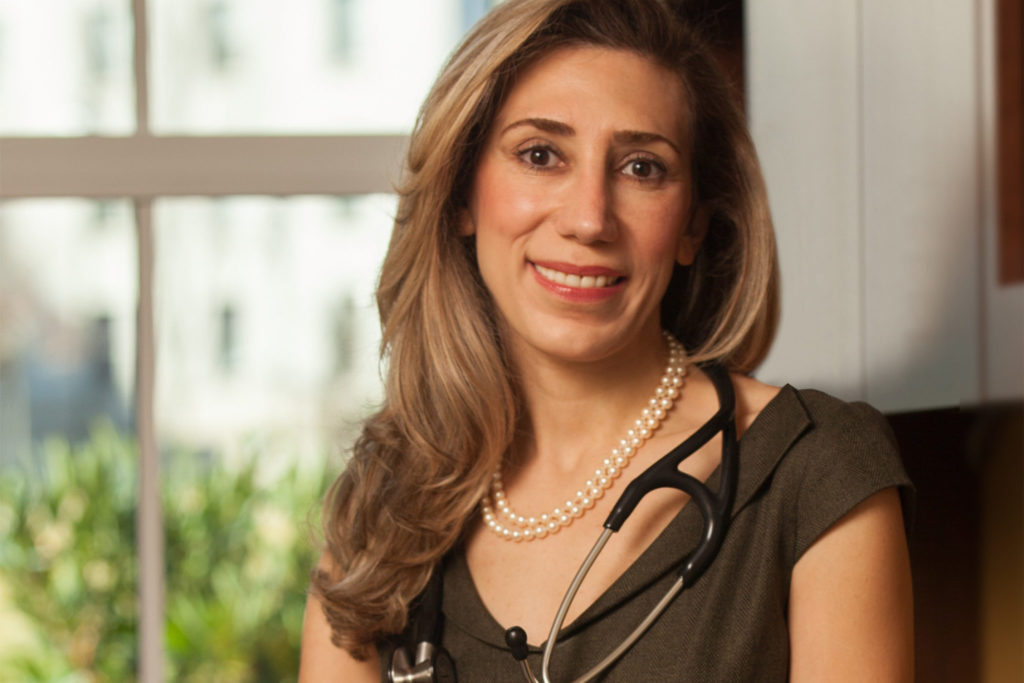Leader in Cognitive Health Shares Insight on How PCPs Can Directly Help Patients Suffering from Dementia

Dr. Sharon Bergquist is a Medical Director with Emory Executive Health and Master Clinician at the Emory Department of Medicine. But it’s her role as a primary care physician that gives her a unique insight on the front lines, caring for patients and dealing firsthand with the challenges of appropriately identifying and diagnosing patients with various forms of dementia. By working with these patients every day, Dr. Bergquist has developed a keen sense of where the healthcare system works, and where more work still needs to be done.
One aspect that Dr. Bergquist values highly is a multidisciplinary, integrated approach to care. “It’s an area where I feel that we as primary care physicians, our offices are not often set up for a team approach. But I strongly believe that at a certain stage in the disease progression of many dementia conditions, groups that can offer integrated care benefit not only patients but also their families and related support systems. It’s a much more comprehensive way of supporting patients throughout the disease.”
It was while working on the Emory Healthy Brain Study that Dr. Bergquist saw the value of a multidisciplinary integrated approach in practice. But the challenge with that model is that a team takes over the care of the patient away from their primary care physicians and is therefore targeted to late- and end-stages of cognitive conditions such as Alzheimer’s disease. A critical gap existed for PCPs with patients that had early and mid-stage diseases—stages where the PCP could and should be the primary conduit of care for the patient, if they had the right support system in place.
“There is a high percentage of people in Georgia that have memory decline and have not been appropriately diagnosed,” Dr. Bergquist shared. “Primary care physician groups have an infrastructure that allows them to screen people to catch these conditions, but they need training and support to differentiate normal memory loss from disease. And even when diagnosed, gaps exist in gaining access to specialty care. In the past, this is why we often referred patients directly to a neurologist, but then they were often delayed getting the visit to confirm the diagnosis. And this was happening Atlanta, a metropolitan area that has an academic center. I can imagine these challenges are magnified exponentially in more rural areas of Georgia.”
Georgia Memory Net fills a critical need
When Dr. Bergquist first heard of Georgia Memory Net, a network that provides healthcare professionals with the resources they need to help diagnose, treat and support patients experiencing memory loss or cognitive impairments, she quickly realized the value of the program in filling the deficiency that existed within the current Georgia healthcare system.
“There are multiple, concrete advantage to this type of program for primary care physicians,” explained Dr. Bergquist. “The first is helping primary care physicians feel comfortable identifying patients that have abnormal memory loss by encouraging the use of the mini-cog test administered as part of the annual wellness visit. It’s a very simple tool to at least identify the patients who are at risk. The second component is the clinical support in confirming a diagnosis and developing a treatment plan that the PCP can administer themselves. And the third essential element is the logistical support. As primary care physicians, we don’t have the team in place to adequately do the work of taking care of patients with dementia. We cannot provide social services and other resources simply because of reimbursement issues. We’re centered around care delivery and cannot provide the integrated, multidisciplinary approach to ensure the best care we want for our patients with dementia.”
“And when we’re talking about a support system, we also need to consider support at an even deeper level than this team-based approach,” the physician continued. “There is also the support that comes from patients and care partners meeting others who are in the same situation. There is plenty of stress to deal with, and I believe it’s very helpful to process it with other families that are going through the same challenges and experiences.”
Georgia Memory Net supports primary care physicians
Dr. Bergquist plans to help get the word out on everything that Georgia Memory Net has to offer and work as a liaison between the program and the PCP community. “Right now, there is very low adoption for Annual Wellness Visits in the State of Georgia, even though it is a covered benefit for Medicare beneficiaries. I think many primary care physicians can feel overwhelmed by the number of tasks that they are asked to do in a very short amount of time within an office visit encounter. But I think we can assist practices in showing how this screening is a very financially viable and beneficial way to utilize their time and benefit their patients. I would encourage primary care physicians to have nurses perform the annual wellness visit. They can do screenings such as the mini-cog well and offload these tasks from the plate of the PCP.”
“And as we increase the number of screenings in the State of Georgia, through Georgia Memory Net we are also planning ahead of the curve, anticipating the need and providing an infrastructure to prepare for the growing number of people that will be diagnosed. It’s one of the program’s biggest strengths, and another strength is that it’s very collaborative with academic institutions, community service organizations, and other partnerships that provide the ability to reach all corners of the state.”
Looking ahead
Dr. Bergquist shared some final thoughts on where she thought Georgia Memory Net is headed and its potential impact beyond state boundaries. “I can see this becoming a wonderful pilot program for other states to follow, because cognitive health is not a Georgia problem, it’s a global problem. And as we get past the immediate need to identify and diagnose patients with early and mid-stage disease, we can start to focus on a future where we encourage brain health and empower people to try and delay the onset of dementia through earlier identification of risk and preventive measures that could reduce the number of cases and provide for a better life overall.”
Sharon Horesh Bergquist, MD, FACP
- Rollins Senior Distinguished Clinician
- Assistant Professor of Medicine—Emory School of Medicine
- Master Clinician—Emory Department of Medicine
- Medical Director—Emory Executive Health
- Founding Director—Emory Lifestyle Medicine & Wellness
Assistant Director of Research—Paul W. Seavey Comprehensive Internal Medicine Clinic
Georgia Memory Net at a Glance
What is Georgia Memory Net and why does it exist? There’s so much information about Alzheimer’s and related dementias in Georgia, and how to diagnose and treat them, that it can become overwhelming. We’ve done our best to simplify the info into a clear one-page infographic.

